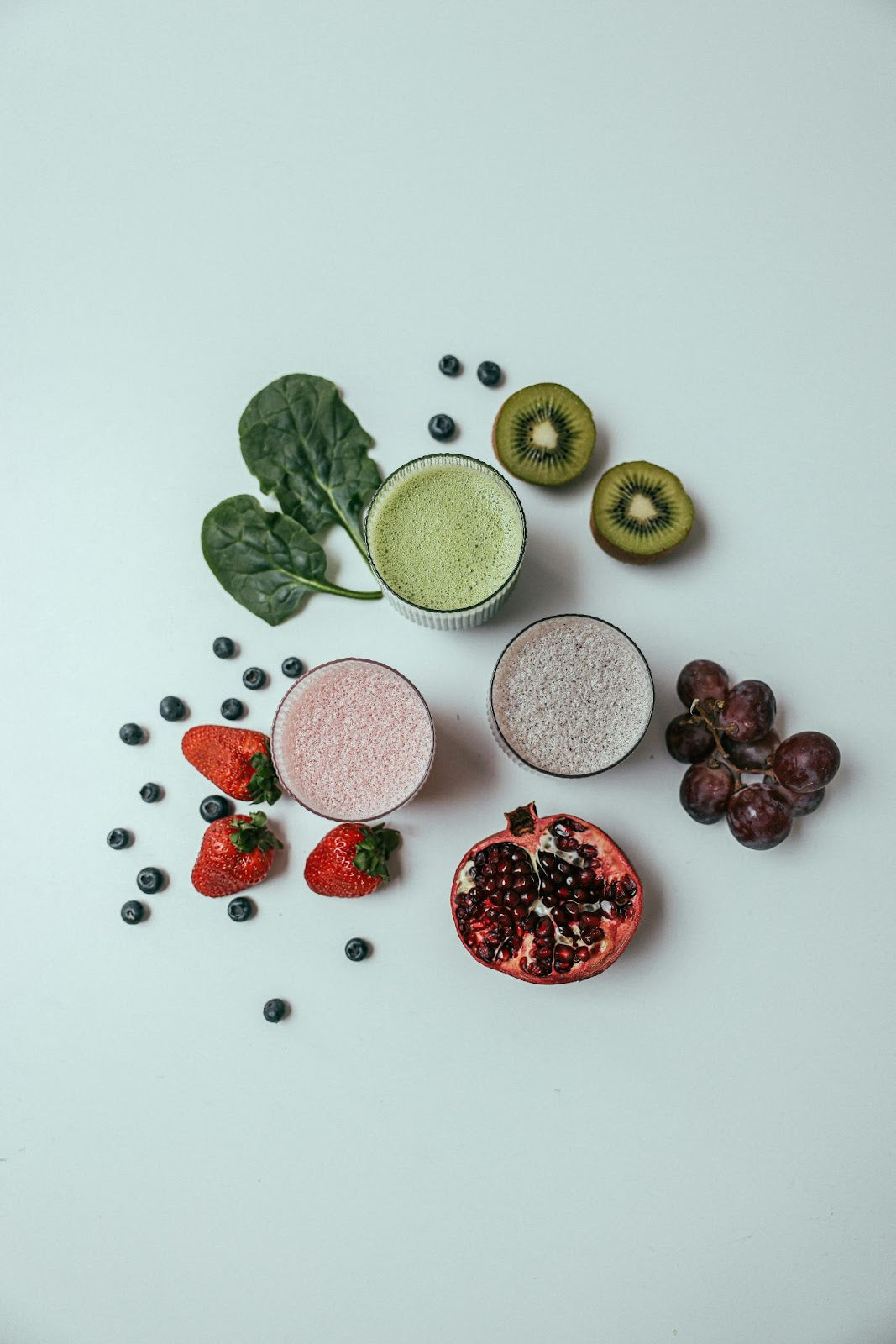If you care about your health, you probably already know consuming enough protein has numerous benefits. Getting enough protein through proper nutrition alone can be difficult, so many people supplement their protein intake. Protein bars can help you meet your daily intake goals, but deciding what kind of protein is best for you takes a bit of consideration.
To take out some of the guesswork for you, this guide provides the benefits of two titans in the protein world -- collagen protein vs whey protein -- with the goal of understanding their impact on your lifestyle goals.
Collagen Protein, Whey Protein, and Your Health Goals
Protein is a component of your diet that gives you energy and fuels the production of muscle and bone. It also regulates hormones, appetite, and the immune system. Health trends have recently touted protein as the most critical asset to a healthy lifestyle.
Not to mention, the recent popularity of exercising and gym culture, further highlights the necessity of protein in your diet. Protein plays a role in post-exercise recovery and helps you stay full longer. This is why experts say that the key to getting into shape is consuming enough protein daily.
Beyond this, statistics show that many people neglect their protein needs, leading to poor health outcomes, especially as they age. Not getting enough protein can cause a host of adverse side effects. The most common are fatigue, tiredness, and getting hungry faster.
If you have an active lifestyle, this can sound like a death sentence. Low protein intake is also likely to lead to weight gain and minimize the effectiveness of your workouts. Some other side effects of low protein intake are slow healing from cuts and scrapes and a weakened immune system. You might also suffer from excessive swelling in your feet and joints, as well as mood changes.
No doubt protein is essential, but many people don’t know how much protein they need each day. Did you know that men over the age of 19 should be consuming 56 grams, and women should get 39 grams of protein a day? Most people are probably falling a little short, but this is where protein supplements come in. By including a protein supplement you can meet your protein goals, which can help you feel better, look better, and perform better.
If you feel fired up to get your protein fix, the next step is choosing a protein supplement. What’s important to keep in mind is that not all protein supplements are on equal footing. You need to know your body and consider your overall goals and needs to choose the right supplement. For now, let’s start the conversation with the two supplements in Built Bar products.
What is Collagen?
Collagen is a protein that makes up roughly 30% of your body's protein content. It is responsible for building up fibroblasts that aid in cellular regeneration by replacing dead skin cells, improving skin elasticity, and helping blood clot.
Collagen is a naturally occurring protein, meaning that most food sources that are rich in collagen are meats. Fish, beef, chicken, bone broth, and pork all contain collagen. However, simply eating collagen-rich foods is not enough, as other vitamins, such as vitamin C and zinc, are necessary for your body to properly break down and absorb collagen. Collagen supplements often contain these essential nutrients to help you get the most value out of your protein.
The process of making collagen supplements involves extracting collagen from bones in the form of gelatin. Collagen producers then hydrolyze, sterilize, and dry the remains to produce a powder. Creating collagen through chemical engineering is gaining traction in recent years as it caters to those with a plant-based diet or don’t eat meat for religious reasons.
There are over 20 different types of collagen, but there are five primary types you should know about:
- Type I: The most abundant type within human bodies. It is dense and provides structure to skin and bones.
- Type II: Found in elastic cartilage.
- Type III: Found in muscles, arteries, and organs.
- Type IV: Found in the layers of your dermis.
- Type V: Found in the cornea of your eyes, some layers of skin, hair, and tissue of the placenta.
The most popular type of collagen protein available today is bovine collagen, primarily type I and type II. Collagen also has notable applications in the dermatology field. It is a powerful tool with anti-aging properties. Let's further explore the benefits of collagen in the next section.
Benefits of Collagen
Aside from being a protein that gives you energy to carry out daily activities and maintain muscle health, collagen has many other benefits.
Collagen is great for your skin; regularly consuming collagen can improve skin texture and elasticity. As you age, your body naturally depletes collagen stores, which is partially why people end up with wrinkles and grays. Replenishing your body's collagen levels and getting enough collagen can slow some of these signs of aging.
Collagen is also a potent joint health supporter. It plays a role in repairing bones and joints, meaning that consuming collagen may help prevent mobility loss as people age. Collagen is literally what makes up human joints, so keeping your collagen levels in the right place is essential.
Aside from this, collagen also has restorative properties, meaning it can help you heal after a workout. If you’re a gym buff, getting a high-quality collagen protein will help you make meaningful gains, and also help with muscle recovery after a rigorous workout. There is a link between collagen and weight gain meaning that for those of you who are bulking, trying a collagen protein should be a no-brainer.
If you smoke, eat a lot of refined sugar or carbs, or regularly use a tanning bed, collagen may have additional benefits. These activities deplete your natural collagen at a higher rate, so you might need to offset the negative effects with extra collagen.
Doctors recommend 2.5-15 grams of collagen a day. Are you getting your recommended dose? If not, a supplement might be a great addition to your workout routine if you're trying to build up muscle, or every day if you want the benefits for your physical appearance.
What is Whey?
Whey is a byproduct of cheese production. Adding enzymes during the process creates curds, which later become cheese. The other thing left behind is whey, which contains lactose and fat. Milk producers then pasteurize and dry this product, which is how they produce the whey protein powder most people are familiar with.
Whey is also present in a number of different foods. Since it’s a byproduct of cheese production, whey is mainly present in other dairy products. Foods that contain whey include goat and cow milk, yogurt, and other high-moisture cheeses like cottage cheese, ricotta, and mozzarella. You can also find whey in foods that use milk or cheese as an ingredient, such as baked goods, cereals, and certain salad dressings.
Scientists divide whey into three types in supplement form: concentrate, isolate, and hydrolysate. Concentrated whey is popular in bars and shakes. The downside is that this type of protein results in varying levels of lactose, protein, and fat between products.
Isolate is the high-protein, low-fat version of whey. It contains less lactose, making it a better option for those with dairy intolerances. Finally, hydrolysate or hydrolyzed whey protein is the most easily digestible whey. They use it most commonly in medical supplements and baby formula.
You can consider whey a complete protein with all nine essential amino acids, meaning it’s a great choice as an additive to a healthy diet. Whey protein can aid in building healthy muscles, but that’s not all it can do.
Benefits of Whey
Most fitness buffs consider whey one of the best supplement choices. Whey protein has been around for a long time. There’s no shortage of research to back whey’s claim to fame. Studies show that pairing whey protein with a calorie deficit, can aid in weight loss. The same study shows that whey protein contributes to a notable building of lean muscle mass. This fact makes whey a great option if you lead an active lifestyle or want to slim out for summer.
Whey protein also has a link to positive trends in cardiovascular health. Two popular studies show that it can decrease blood pressure and cholesterol. This can be an especially prevalent factor for men, as they are more at risk for cardiovascular issues.
Another factor to consider is that in a blind taste test, most participants preferred the taste of whey protein. This could be due to the higher fat content, but if you value a great-tasting protein whey is the way.
In terms of nutrition, whey gives people access to all vital amino acids the human body cannot produce on its own, or are difficult to obtain from other sources in your diet. These amino acids are critical to your health, so it is important to find ways to incorporate them into your regimen. Whey has a leg up on collagen in that it’s a complete protein. It can stand alone and contains all the nutrients you need, making it a better option for filling nutritional gaps.
Making the Right Decision: Comparing Collagen Protein and Whey Protein

Now that you’ve taken the time to outline the details and benefits of collagen protein vs whey protein, you can make an informed decision about what type is best for you. One thing is for sure: if you’re not meeting your protein goals, it’s time to start. Introducing a protein supplement into your diet can help you crush your fitness goals and provide extra energy and overall health benefits.
Knowing you want to move forward and meet your protein goals, let's recap a few things you’ve learned so you can decide what type of protein is best for you.
You should choose collagen protein if:
- If you’re a smoker, frequent tanner, or don’t have a great diet.
- If you want to gain muscle mass/bulk or gain weight.
- You need joint support.
- If you want the additional skin, hair, and joint benefits.
You should choose whey protein if:
- If you want to lose weight/ gain lean muscle mass.
- If you are a vegetarian (not vegan).
- If you want to improve cardiac health and lower blood pressure.
- If you value a great-tasting protein supplement.
It’s lucky for you that at Built Bars, taste is never an issue. Whey and collagen proteins are the go-to in the formulation because it’s the best option for you. You now have a way to make getting your daily protein taste great. Built Bar’s makes their delicious protein bars in the USA, from high-quality ingredients with great macros. No matter what flavor or texture profiles you like, there’s something for everyone.
The BUILT variety pack is highly recommended if you want to try the state-of-the-art bars, but don’t know where to start. You’ll receive a mixture of 12 of Built Bar’s most popular flavors featuring both whey protein and collagen protein bars that you can sample before committing to one. There's even the option to build your own box. Shop around, and check out the newest Cookies 'N' Cream Puff flavor.



